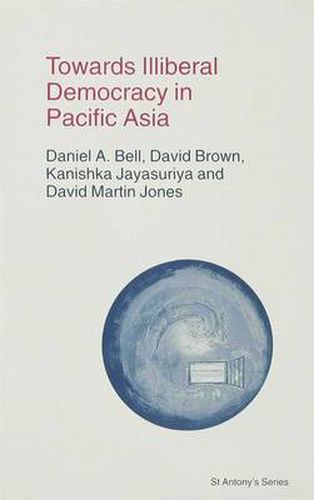Readings Newsletter
Become a Readings Member to make your shopping experience even easier.
Sign in or sign up for free!
You’re not far away from qualifying for FREE standard shipping within Australia
You’ve qualified for FREE standard shipping within Australia
The cart is loading…






This title is printed to order. This book may have been self-published. If so, we cannot guarantee the quality of the content. In the main most books will have gone through the editing process however some may not. We therefore suggest that you be aware of this before ordering this book. If in doubt check either the author or publisher’s details as we are unable to accept any returns unless they are faulty. Please contact us if you have any questions.
This book challenges the view that liberal democracy is the inevitable outcome of economic modernization. Focusing on the stable and prosperous societies of Pacific Asia, it argues that contemporary political arrangements are legitimised by the values of hierarchy, familism and harmony. An arrangement that clearly contrasts with a western understanding of political liberalism and the communicatory democracy it facilitates. Instead of political change resulting from a demand for autonomy by interest groups in civil society, the adoption of democratic practice in Asia ought to be viewed primarily as a state strategy to manage socio-economic change.
$9.00 standard shipping within Australia
FREE standard shipping within Australia for orders over $100.00
Express & International shipping calculated at checkout
This title is printed to order. This book may have been self-published. If so, we cannot guarantee the quality of the content. In the main most books will have gone through the editing process however some may not. We therefore suggest that you be aware of this before ordering this book. If in doubt check either the author or publisher’s details as we are unable to accept any returns unless they are faulty. Please contact us if you have any questions.
This book challenges the view that liberal democracy is the inevitable outcome of economic modernization. Focusing on the stable and prosperous societies of Pacific Asia, it argues that contemporary political arrangements are legitimised by the values of hierarchy, familism and harmony. An arrangement that clearly contrasts with a western understanding of political liberalism and the communicatory democracy it facilitates. Instead of political change resulting from a demand for autonomy by interest groups in civil society, the adoption of democratic practice in Asia ought to be viewed primarily as a state strategy to manage socio-economic change.